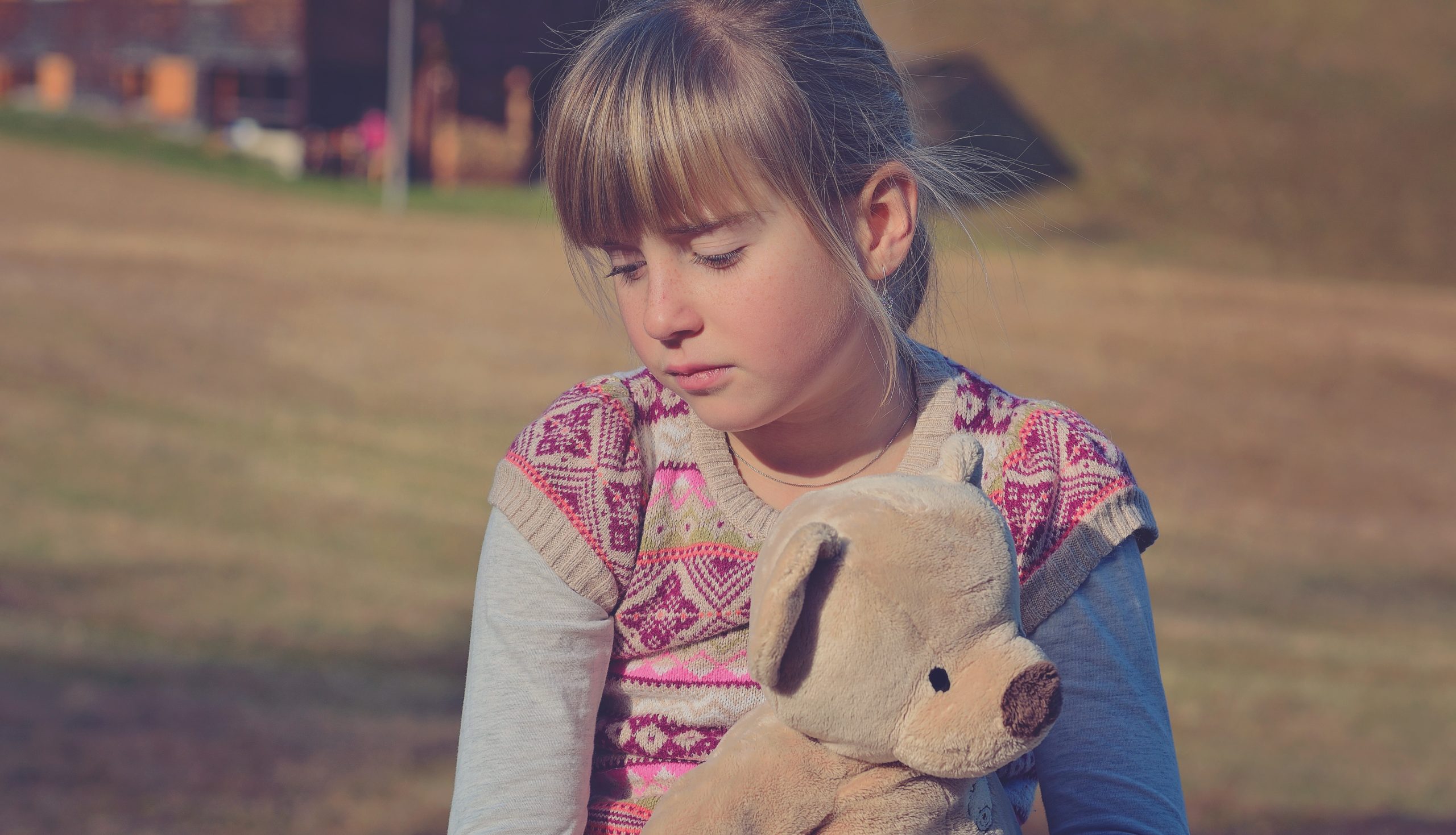Helping Your Child Deal with Death


Grief can be a very difficult and confusing process for kids. After the death of a loved one, children may feel and show their sadness in many different ways. How they cope will depend on their age, personality, relationship with the person who died and the support they receive. While you can’t protect your child from the pain of a loss, as a parent you can help them feel safe and build healthy coping skills they will need for the future. Here are some ideas for supporting your child through their grief:
Stay Direct
Avoid using abstract phrases like, “Grandma went to sleep,” “We’ve lost her,” or “She’s passed on.” Kids are very literal so these statements can be scary. Instead, use clear, simple words to avoid confusion: “I have some sad news. Grandma died today.” There are also many children’s books on death and reading one together can be a good way to start a conversation with your child.
Be Age Appropriate
While it’s important to be open and honest, you also need to keep your child’s age and development in mind. Let your child guide the conversation to help you figure out what they already know and any questions they may have. Focus on answering their questions instead of giving them too much information all at once. If you have multiple children and there’s an age gap, you may want to talk to each child separately.
Acknowledge and Celebrate
Whether or not your child attends the funeral, visitation or memorial service is a personal decision. Ceremonies can be helpful for closure, but they can also be an intense experience. If your child wants to go to the ceremony, make sure you prepare them for what to expect. There are also other ways a child can say goodbye to a loved one like planting a tree, lighting a candle, making a photo album or visiting a special place together.
Maintain Routine
While your family is grieving, try to keep up regular social, academic and recreational activities as much as possible. These will offer a break from the grief and provide stability and organization. Maintaining set bedtimes, family meals and other daily routines will also reduce the number of changes and help life feel a little less chaotic.
Keep Checking In
Make sure your child knows you are there to grieve and support each other as a family. Provide lots of affection, reassurance and regularly ask how they are feeling. Children are very curious and their questions can be hard to predict. They may wonder if you get hungry when you die, or if you still celebrate Christmas after death. Encourage questions and don’t worry about having all the answers. If you avoid the subject or seem uncomfortable, they can feel like death is taboo or that they are left to navigate the loss on their own.
Watch Behaviour
Like many adults, children often struggle communicating their feelings after a death. Be on the lookout for signs they aren’t coping well. Drawing, writing and playing together can be helpful ways to gauge how they are feeling. Red flags may include anxiety, fighting, mood swings, stomach or headaches, trouble sleeping, behaviour regression, lack of emotion or self-blame. If you are seeing these signs, consider reaching out to support groups or professionals trained to better identify and address these issues.
Show your Emotions
Speaking openly about how you are feeling can help children make sense of their own emotions. Rather than trying to hide how you feel, find appropriate ways to talk about your emotions like, “I am having a sad day because I miss your dad.” By showing your child that you can cope with your grief, even though you are sad, you will help them understand that grief is a part of life. To make sure you aren’t burdening them with your emotional needs, keep your really strong emotions for private times and seek support from friends, family or a professional counsellor.
When a death occurs, children need to be surrounded by love, support and understanding. Regardless of age, grieving is a process and it takes time to heal from a loss. A caring adult can help children develop a healthy attitude towards life and death. Be direct and honest, don’t be afraid to speak fondly about your loved one and recognize when they may need to talk to someone outside of the family.



